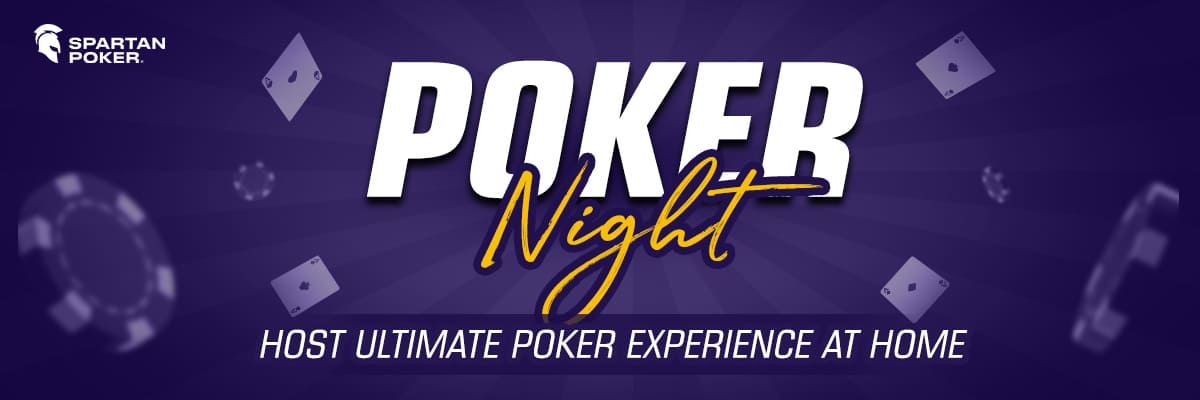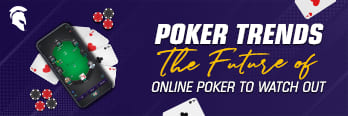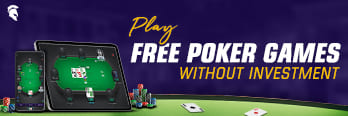Are you ready to deal with the cards, place your bets, and create an unforgettable night filled with laughter and friendly competition?
Hosting a poker night can be more than just a casual gathering; it's an opportunity to craft an epic experience that your friends will cherish for years to come.
Whether you're a seasoned poker enthusiast or a first-time host, we've got you covered with a comprehensive guide on how to host a poker night that your friends will never forget.
Picture this; the room adorned with the flickering glow of dimmed lights, the sound of shuffling cards, and the unmistakable aroma of freshly smoked cigarettes and whiskey.
As the host, you hold the power to set the stage for an exhilarating poker showdown that will leave your guests counting down the days until the next game night.
From selecting the perfect game variant to creating a warm and inviting atmosphere, every detail significantly makes your poker night truly memorable.
Whether your friends are poker pros or complete novices, the key lies in crafting an experience that appeals to all and ensures an evening of excitement, strategic thinking, and unforgettable moments.
What do you need to Host a Poker Night Game?
Hosting the perfect game night doesn't require a lot of equipment, but having the right items can enhance the overall experience.
Here's a list of essential equipment and items you may need:
Poker Chips:
A set of quality poker chips in different denominations. These chips represent players' bets and add to the authentic poker experience.
Playing Cards:
High-quality decks of standard playing cards. It's a good idea to have multiple decks in case any cards become damaged during the game.
Poker Table or Playing Surface:
If possible, use a dedicated poker table with a smooth surface. You can also cover a regular table with a poker tablecloth to create a suitable playing area.
Chairs:
Comfortable chairs for all players. Consider using padded chairs, or cushions on chairs, especially for longer game sessions.
Timer or Clock:
A timer or clock is essential for managing betting rounds and blind levels in games like Texas Hold'em tournaments.
Rulebook and Game Instructions:
Printed or digital copies of poker rules and game instructions for quick reference and clarification.
Dealer Button:
A "dealer button" indicates the player who is currently acting as the dealer for the hand.
Blind Buttons:
For games with blinds (e.g., Texas Hold'em), you'll need "small blind" and "big blind" buttons to show the forced bets.
Scorecards and Pencils:
If you plan to keep track of scores or tournament standings, provide scorecards and pencils for players to record their progress.
Snacks and Refreshments:
Prepare snacks and beverages to keep everyone energized and hydrated during the game night.
Table Decorations:
Consider adding poker-themed decorations like card-themed tablecloths or centrepieces for a more festive atmosphere.
Anti-Sliding Sheet:
If you're using a table without a dedicated poker surface, consider using an anti-sliding sheet to prevent cards and chips from sliding around.
Optional Equipment:
Card Shuffler: An automatic card shuffler can speed up the game and ensure fair shuffling.
Card Guards: Card guards are small, decorative objects placed on top of players' hole cards to protect them from being accidentally exposed or mucked.
Poker Visors or Hats: To add to the fun, consider providing poker visors or hats for players to wear during the game.
Poker Books or Strategy Guides: For serious poker enthusiasts, you might consider providing some poker books or strategy guides for players to browse during breaks.
Tips and Tricks to Host the Perfect Poker Game Night
Hosting the perfect poker game night requires careful planning, attention to detail, and creating a comfortable and enjoyable atmosphere for your guests. Here's a step-by-step guide along with tips and tricks to ensure a pleasurable gaming experience:
Step 1: Invitations and RSVPs
- Send out invitations well in advance to ensure your friends can mark their calendars.
- Request RSVPs to have an accurate headcount for planning seating and refreshments.
Step 2: Poker Supplies
- Poker Chips: Acquire a set of quality poker chips. Aim for a variety of denominations to accommodate different betting levels.
- Playing Cards: Invest in a couple of decks of standard playing cards. Replace worn-out cards to ensure fair gameplay.
- Poker Table: If possible, use a dedicated poker table to enhance the experience. Alternatively, any large table covered with a poker tablecloth will do.
Step 3: Game Variants
Choose poker variants suitable for your group's preferences and skill levels. Texas Hold'em is a popular choice for its simplicity and widespread familiarity.
Step 4: Rules and Instructions
- Have printed or digital copies of the poker rules for quick reference.
- Ensure everyone knows the basic poker hand rankings and game mechanics.
Step 5: Snacks and Refreshments
- Prepare a selection of finger foods, chips, and dips that are easy to eat while playing.
- Offer a variety of beverages, including water, soft drinks, and alcoholic options if desired.
Step 6: Seating Arrangements
- Arrange the seating to allow everyone a comfortable view of the table and easy access to chips and cards.
- Ensure adequate space between players for privacy and movement.
Step 7: Decor and Ambiance
- Dim the lights or use dim lights to create a cozy atmosphere.
- Consider decorating with poker-themed elements like playing cards, green felt, or poker chip centerpieces.
Step 8: Dealer and Timekeeping
- Designate a dealer or take turns dealing to maintain fairness.
- Use a timer or a smartphone app to manage blinds and betting intervals.
Step 9: Be Mindful of Betting Limits
- Set clear betting limits at the beginning to avoid uncomfortable situations during the game.
- Make sure all players are aware of the stakes before the game begins.
Step 10: Entertainment Between Hands
- Have a playlist of background music to maintain a lively atmosphere during breaks between hands.
Step 11: Encourage Friendly Competition
- Emphasize that the main goal is to have fun and enjoy each other's company.
- Encourage camaraderie and congratulate good plays, regardless of the outcome.
Step 12: Know When to Call It a Night
- Be mindful of the time and consider the preferences of your guests when deciding the game duration.
Step 13: Prizes and Tokens
- Consider awarding small prizes or tokens to the top-performing players.
- It adds an extra layer of excitement and friendly competition to poker night.
Remember, a successful poker game night is not just about the cards; it's about creating an enjoyable experience for everyone involved.
By considering the comfort of your guests, providing clear instructions, and fostering a fun and friendly atmosphere, you'll host a poker night that your friends will cherish and look forward to attending again.











